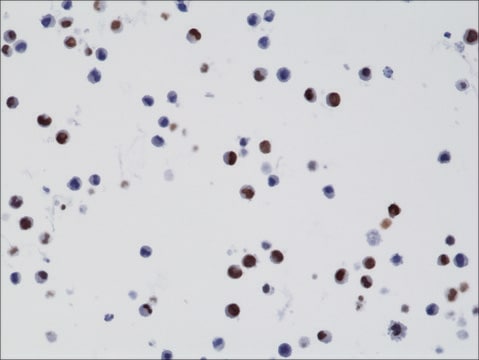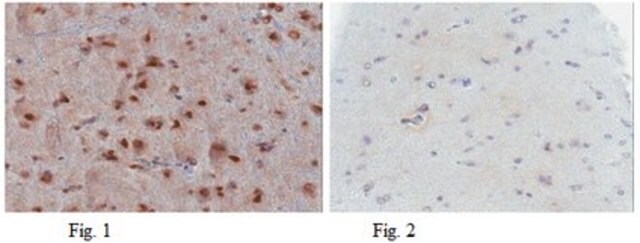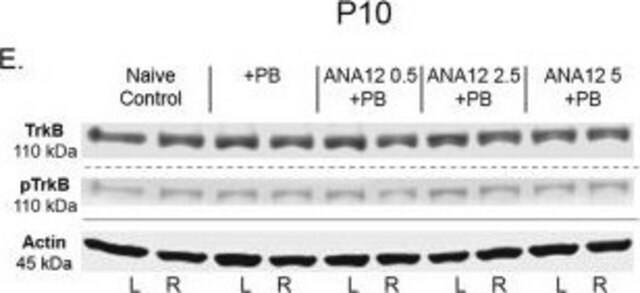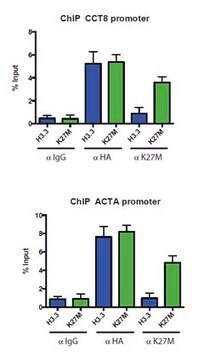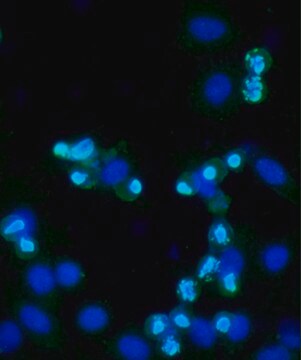P9249
Monoclonal Anti-p53−Biotin antibody produced in mouse
~1 mg/mL, clone DO-1, ascites fluid, buffered aqueous solution
About This Item
Recommended Products
biological source
mouse
conjugate
biotin conjugate
antibody form
ascites fluid
antibody product type
primary antibodies
clone
DO-1, monoclonal
form
buffered aqueous solution
mol wt
antigen ~53 kDa
species reactivity
human
concentration
~1 mg/mL
technique(s)
flow cytometry: suitable
immunocytochemistry: 5-10 μg/mL using human A431
immunohistochemistry: suitable
immunoprecipitation (IP): suitable
western blot: 0.5-1 μg/mL using human A431 cell extracts
isotype
IgG2a
UniProt accession no.
shipped in
dry ice
storage temp.
−20°C
target post-translational modification
unmodified
Gene Information
human ... TP53(7157)
Related Categories
General description
Immunogen
Application
Biochem/physiol Actions
Physical form
Storage and Stability
For extended storage, freeze in working aliquots.
Repeated freezing and thawing, or storage in “frostfree”freezers, is not recommended. If slight turbidity occurs upon prolonged storage, clarify the solution by centrifugation before use. Working dilution samples should be discarded if not used within 12 hours.
Other Notes
Disclaimer
Not finding the right product?
Try our Product Selector Tool.
related product
Storage Class Code
10 - Combustible liquids
WGK
WGK 3
Flash Point(F)
Not applicable
Flash Point(C)
Not applicable
Personal Protective Equipment
Regulatory Listings
Regulatory Listings are mainly provided for chemical products. Only limited information can be provided here for non-chemical products. No entry means none of the components are listed. It is the user’s obligation to ensure the safe and legal use of the product.
JAN Code
P9249-25UL:
P9249-VAR:
P9249-BULK:
P9249-200UL:
Certificates of Analysis (COA)
Search for Certificates of Analysis (COA) by entering the products Lot/Batch Number. Lot and Batch Numbers can be found on a product’s label following the words ‘Lot’ or ‘Batch’.
Already Own This Product?
Find documentation for the products that you have recently purchased in the Document Library.
Articles
p53 regulates gene expression, cell cycle control and functions as a tumor suppressor. Inactivation of p53 is closely tied to cancer development.
Our team of scientists has experience in all areas of research including Life Science, Material Science, Chemical Synthesis, Chromatography, Analytical and many others.
Contact Technical Service
